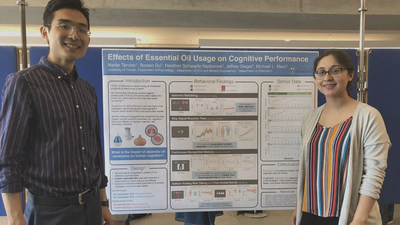Impacts of indoor air quality on cognitive performance

My Role: I developed, programmed, and administered 6 cognitive tasks that provide different snapshots of human cognition (e.g. attention, memory, decision-making, etc.). I worked closely with engineers and chemists to design these experiments according to their constraints while also advocating to them for human/user psychology (and how cognition works more broadly).
Summary: Poor air quality is related to many health issues. But usually air quality has been studied outdoors and these harmful effects emerge across years. Because we spend so much time inside (such as at work), we were interested in how everyday exposure to air pollutants indoors negatively impact cognitive performance in real-time.
With a cross-functional team of engineers, chemists, psychologists, and neuroscientists, we conducted systematic literature reviews and also collected in-lab experimental evidence to test how indoor air quality impacts cognition. In lab, we carefully manipulated air quality while participants were performing different cognitive tasks that I designed. We found evidence that both CO2 and lemon essential oils (from a diffuser) have detrimental effects on decision-making. Our work has been cited by engineers, psychologists, educators, and architects. As it shows why ventilation is critical for building design, such as in workplaces, schools, and this is something studied too in high-stakes environment (like submarines and spaceships), as decision-making may otherwise be impaired.
I also presented earlier versions of this work at a XSEED conference (Toronto, Canada), a conference meant for students to present work that tackles complex, multidisciplinary challenges.